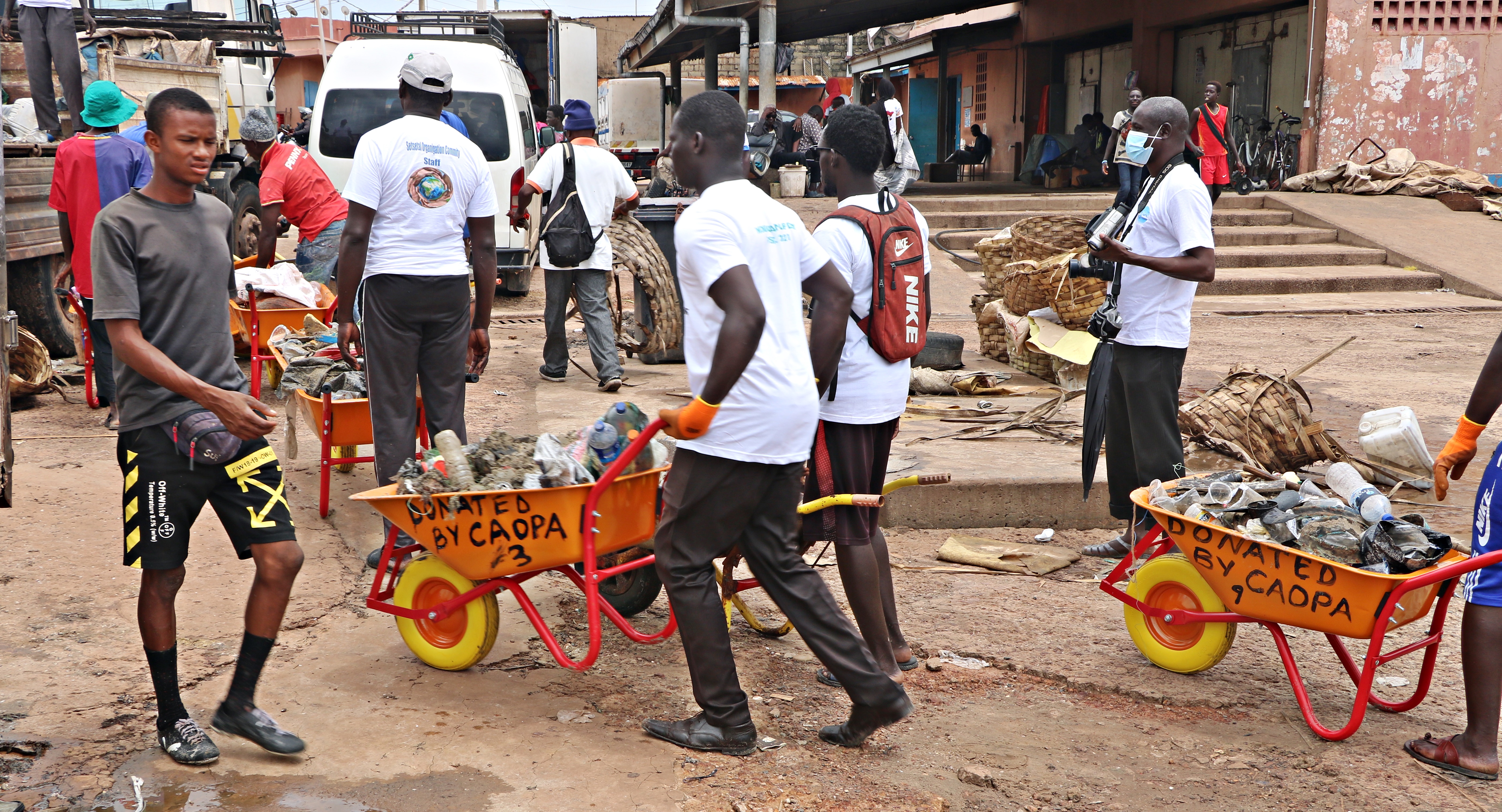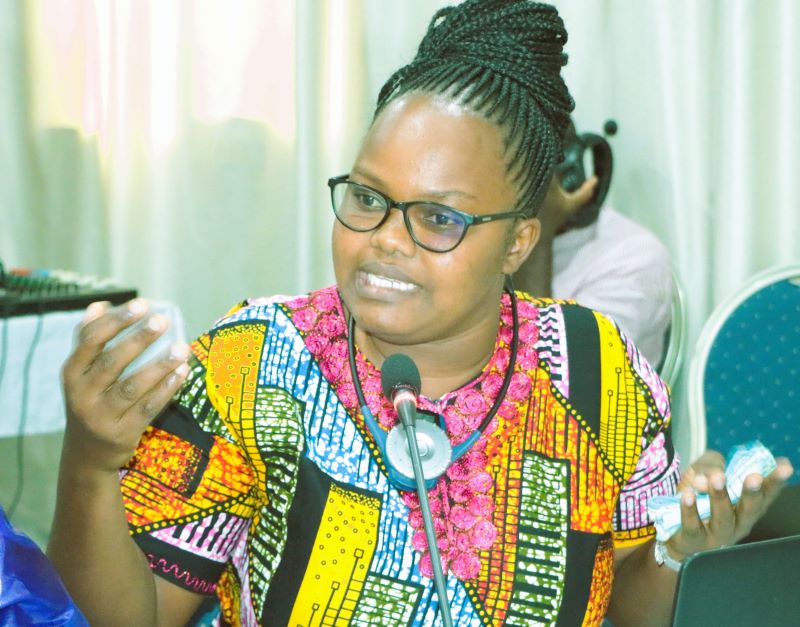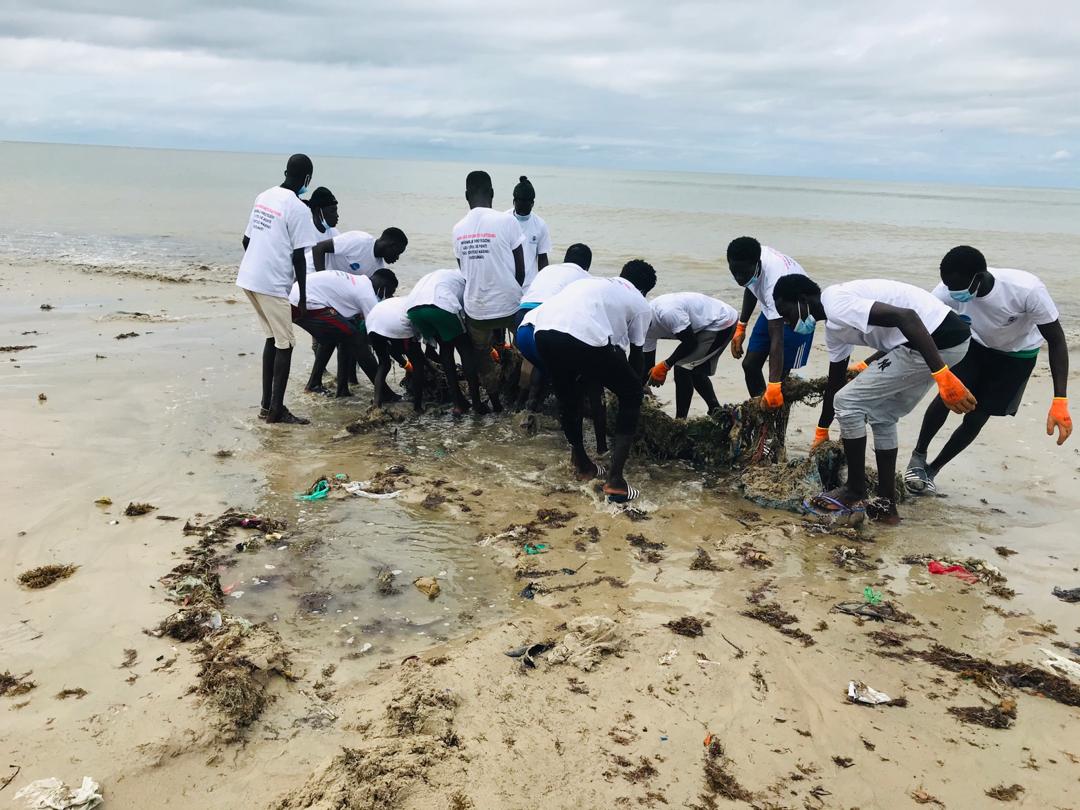## On 8 June 2023, we celebrate World Oceans Day. To mark the occasion, Africa’s artisanal fishing communities have issued a declaration. It was read out by Dorcas Malogho of the youth unit of the African Confederation of Artisanal Fishing Organisations (CAOPA).
For more information, please read the full declaration below.
The World Oceans Day is an occasion to celebrate the value of the oceans and promote sustainable practices to restore and conserve its beauty and its wealth. We, the coastal fishing communities, are the most numerous ocean users. In Africa, women and men in our small-scale fisheries (SSF) make a major contribution to livelihoods, employment, food security and revenue.
For us, it’s high time to turn the tide on pollution, generated from land and sea based activities, on destructive fishing and seabed mining, which threaten our livelihoods and our future.
In 2022, on the occasion of the International Year of Artisanal Fisheries and Aquaculture, our organization, African Confederation of Professional Organizations of Artisanal Fisheries (CAOPA), that represents small scale fishers from 29 African countries, together with coastal fishing communities from around the world, called on governments and their partners to build resilient coastal fishing communities by taking concrete actions, by 2030, in five areas:
- Urgently secure preferential access and co-manage 100% of coastal areas
- Guarantee the participation of women and support their role in innovation
- Protect SSF from competing blue economy sectors
- Be transparent and accountable in fisheries management
- Build resilient communities to face climate change and offer prospects to youth
 A clean ocean is indispensable to provide a future to young men and women in our African small scale fisheries. For millenia, our coastal fishing communities have acted as guardians of the ocean. Today, in many African countries, we have become ocean cleaners.
A clean ocean is indispensable to provide a future to young men and women in our African small scale fisheries. For millenia, our coastal fishing communities have acted as guardians of the ocean. Today, in many African countries, we have become ocean cleaners.
Like elsewhere, the ocean surrounding our continent has become a dustbin: pollution resulting from land based human activities is suffocating it. Plastic pollution in the sea, on the beaches, is a particularly acute problem for ocean ecosystems, and for our communities that live from fishing: microplastics find their way into the fish we catch; marine mammals, seabirds, turtles, ingest plastics, mistaking them for their prey, and die from it. Plastic of all sorts and sizes is washed up on our beaches, creating hygiene problems.
Tirelessly, men and women from our fishing villages collect these plastics and apply their creativity to recycle them into some useful or decorative objects. These initiatives, that can provide jobs for some in our coastal communities, is to be supported.
However, the tide of plastic washing up on the doorstep of our fishing villages never stops. Decisive political action also needs to be taken urgently against those who continue to massively produce plastics that destroy our ocean. And they should contribute financially to the cleansing of our seas and coasts. The polluters should pay, not our fishing communities.

Pollution by plastic also originate from fishing. In particular with the use of mono-filament, which fishers use for a short time only before discarding it at sea. These nets drift into the sea where they continue to catch fish, – ‘ghost fishing’-, get entangled in coral reefs and choke them. This type of net is widely used in fishing but also in agriculture, to protect the crops. Definitely stopping the use of monofilament net, to stop the damage it creates in the ocean, will not only require government to organize massive awareness raising campaigns for its current users, but also to stop their import whilst providing affordable alternatives to fishers.
Each year, 11 million tons of plastic are dumped in the ocean—an amount that is projected to nearly triple by 2040 without urgent, large-scale action. Our small scale fishing communities will continue to fight plastic pollution on the beaches, at sea. But their efforts are only a drop in the ocean. Our governments and the international community should also play an active role to change the tide ##.


